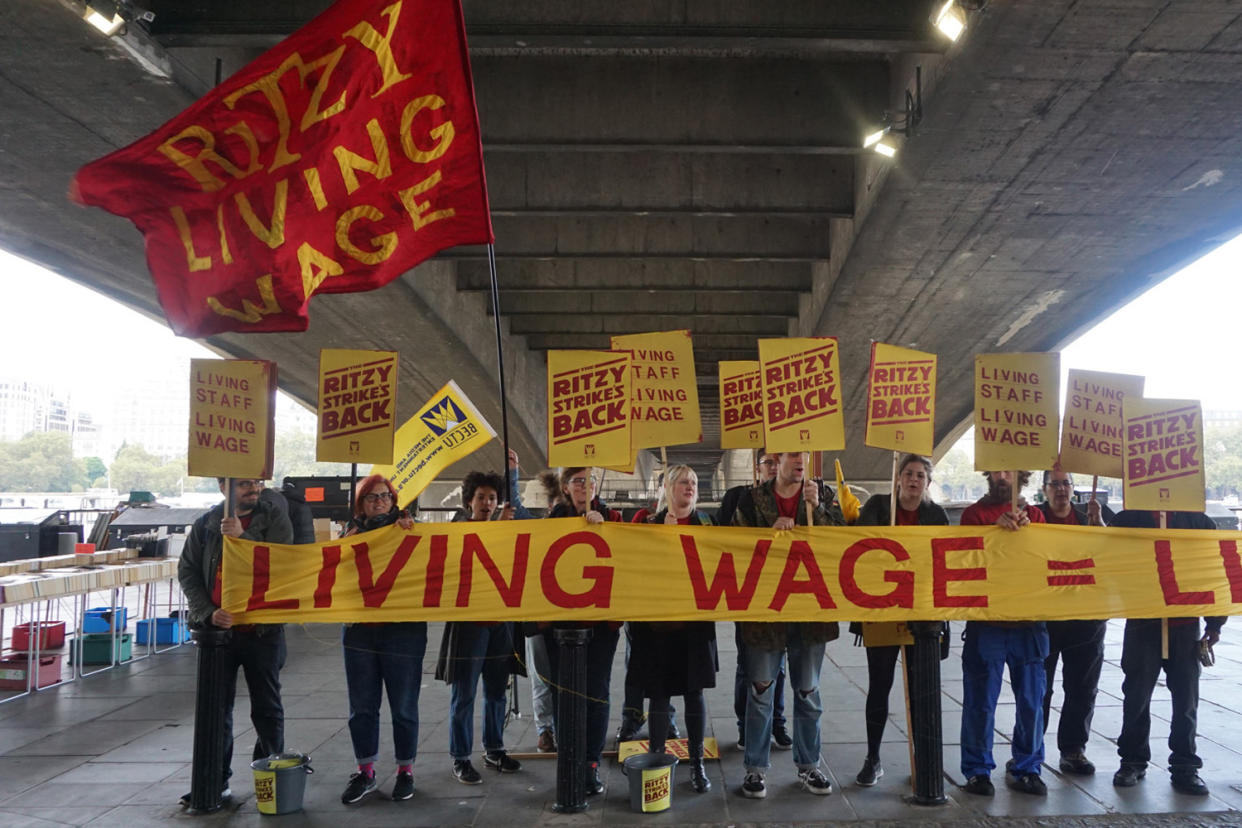How to Resist: Turn Protest to Power by Matthew Bolton - review

Back in 2003, an HSBC shareholder stood up at the bank’s annual general meeting in Canary Wharf and addressed the chairman. “Sir John Bond, distinguished ladies and gentlemen, my name is Abdul Durrant,” he said. “I work in the same office as the board members, the only difference is I don’t operate computers. My function is to operate a mop and bucket.” Durrant described his life as a night-cleaner on £4.50 an hour, with no sick pay, no pension and no means to provide for his six children since Sir John had refused to sanction any pay rises.
Matthew Bolton, an organiser with pressure group Citizens UK, relates this confrontation in his short, sharp pamphlet for “people who are angry with the way things are and want to do something about it”. His point is not that Durrant was an unusually bold individual. It is, rather, that careful strategy had gone into creating this flashpoint.
Local activists had bought Durrant the shares that gained him access to the meeting; the press had been tipped off; and a bank was a smart place to focus attention as Sir John, with his £2 million a year, could hardly complain that there wasn’t the cash to pay the cleaners. Durrant and his colleagues were soon receiving a wage they could live on. Bolton has built on these lessons as he led the UK Living Wage campaign that has resulted in hundreds of millions of pounds worth of pay-rises for Britain’s poorest workers.
For Bolton, political engagement doesn’t simply mean waving around woke signs at street protests, or visiting the polling booth and feeling all virtuous about which box you ticked. “Now we have the vote, we have mistaken politics for Parliament and have come to see democracy as something to watch on television or follow on Twitter,” he writes. He wants democracy to happen in schools, churches, estates, hospitals and community halls, a “true populism”, as opposed to the faux-populism of Trump/Brexit.
His chapters are brief and bullet-pointy — “Practical Tools to Build Power” etc — and his insights may be counter-intuitive to those squeamish about words such as “POWER”. For Bolton, power is best understood as the means to put your values into practice. “Failing to seek the power you need to make those values real is just idealism.” He’s adamant that change comes not from cuddly concepts such as empathy and altruism but from self- interest. It was in Durrant’s self-interest to be paid more, just as it was in Sir John’s self-interest not to look like a callous beast in front of his shareholders.
Bolton is careful to remain non-partisan. You can see the affinities with Momentum’s vision of Labour as a grassroots movement (or, indeed, Oscar Wilde’s plaint that the problem with socialism is that it takes up too many evenings). He is concerned, however, that Labour activism is focused on winning elections for the party as opposed to winning campaigns for local people.
There are also echoes of David Cameron’s Big Society, only here it’s Big Society as a thought-through concept. Bolton describes an estate visit in 2010, in which he failed to convince Cameron that the purpose of community organising was to let people hold the state and market to account. And yet his iron rule of activism is consistent with conservative philosophy: “Never do for people what they can do for themselves.”
How to Resist lacks a certain elegance and even, you might argue, ambition. Bolton’s sights are on compromise at a time when purity is in fashion; incremental change at a time when progressives are daring to dream of paradigm shifts. But his pragmatism is welcome precisely for this reason. Democracy is too important to leave to other people.
£9.99, Amazon, Buy it now

 Yahoo News
Yahoo News 
